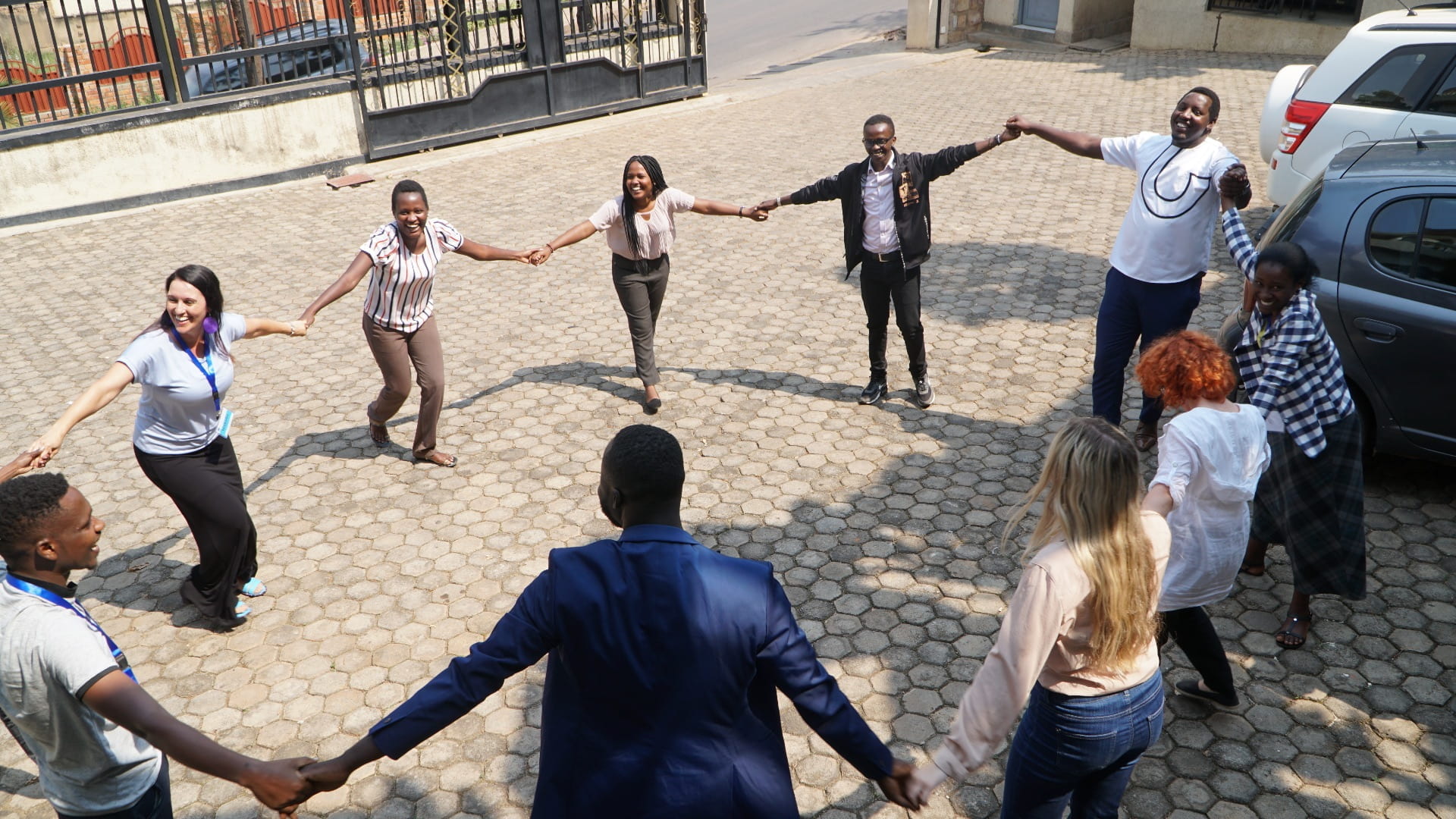MAP in Rwanda worked with key partner organisations including the Institute for Research and Dialogue for Peace (IRDP), the University of Rwanda (UR), the Rwanda Arts Council, Uyisenga Ni Imanzi (UNM), the Rwanda Biomedical Centre and the National Rehabilitation Services to inform Rwanda’s national curriculum and youth policy. Together with the Rwanda Education Board (REB) and the Ministry of Education (MINEDUC), MAP collaborated with local and national partners, using local arts-based methods to promote dialogue and involving key education services, peace and conflict think tanks, cultural organisations and mental health providers.
In 2020, MAP’s pilot project included a training of trainers (TOT) for educators in Rwanda’s Eastern Province, followed by a week-long youth camp to establish youth-led MAP clubs in schools. These efforts reached over 69 educators and 526 youth, and led to the expansion of the programme to five provinces in Rwanda, reaching a total of 25 schools and 10,000 participants.
During the COVID-19 pandemic, when the education sector faced significant challenges and young people needed increased access to psychosocial support, MAP expanded the project to create MAP at Home. This programme provided online psychosocial support through the arts and reached 25 schools, 65 educators, 35 young people, 6 psychosocial workers, 8 cultural artists and 5 community dialogue facilitators in Rwanda to co-produce 12 units of psychosocial modules. The MAP at Home Psychosocial Module was developed in collaboration with IRDP and UNM, providing a new resource for young people struggling with mental health issues in Rwanda.
Small Grant projects: January – May 2022
From January to May 2022 10 Small Grant projects were funded in various youth clubs located in schools, communities, and religious organisations. These projects were carried out with the support of Uyisenga Ni Imanzi (UNM). A central focus of these projects was mental health, aiming to enhance mental health knowledge and awareness among young people, parents, and teachers. The young participants engaged in workshops to explore topics and then shared their learnings through art workshops with parents and teachers, fostering education and promoting positive mental health. Additionally, children and young people produced and presented artwork in group sessions to showcase how various social issues impacted them. One method used to illustrate these social problems was community theatre. Furthermore, arts-based methods like drawing, comic, music, and poetry were used by children and young people to express their emotions and thoughts related to peacebuilding in their communities. A policy brief on mental health care and sustainability was then produced.
